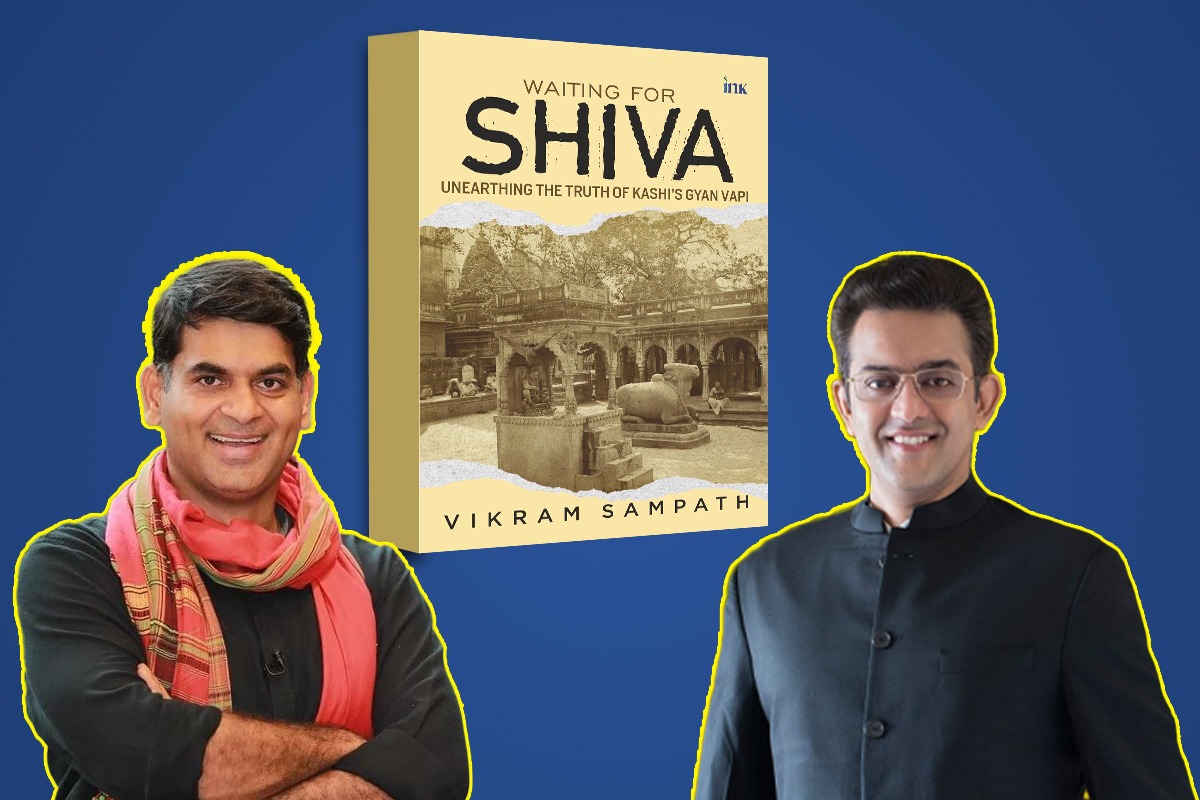NEW DELHI: Renowned scholar and author Vikram Sampath recently addressed a statement made by Lallantop Editor Saurabh Dwivedi on platform X. Following this, numerous individuals on social media, including prominent journalists and politicians like Smriti Irani, came out in support of Vikram Sampath.
The incident occurred during the recent India Today Conclave, where Rahul Kanwal posed a question about India’s future over the next five years. In response, Saurabh Dwivedi referred to writer Vikram Sampath as “Koi Vikram.” He remarked that while watching a discussion on Shringar Gauri on TV, someone named Vikram was simultaneously writing a book on the same topic. Additionally, there was a trending topic on Twitter regarding whether a specific editor would review the book or feature it on his show. Dwivedi characterised these occurrences as indicative of pressure groups prevalent in society.
In his response, Vikram Sampath underscored his stance by stating, “Sorry @saurabhtop – no ‘micro pressure group’ to write about Gyan Vapi history by ‘koi Vikram Sampath’…if presenting history as it is, is identity politics & pressure, then so be it.”
Sorry @saurabhtop – no “micro pressure group” to write about Gyan Vapi history by “koi Vikram Sampath ” …if presenting history as it is, is identity politics & pressure, then so be it 😊. pic.twitter.com/htBIPOuw5x
— Dr. Vikram Sampath, FRHistS (@vikramsampath) March 20, 2024
ALSO READ: Sonam Wangchuk’s hunger strike for Ladakh continues
After Vikram’s comment, Saurabh provided his clarification and apologised to Vikram, but many users on social media are labeling Saurabh Dwivedi as two-faced and criticising him for his comment.
What is Shringar Gauri?
Shringar Gauri is an ancient deity in the Hindu religion, with a temple situated in Varanasi aligned to the controversial Gyanvapi mosque. According to Hindus, the Gyanvapi mosque is constructed over a Hindu temple, with claims that the wazu khana in the mosque is a Shiv linga. Muslims contest these claims. Currently, the mosque is sealed, and an ASI team is conducting a survey.
Recently, District Judge Ajaya Krishna Vishvesha allowed regular worship of Shringar Gauri and other Hindu deities in the southern cellar of Varanasi’s Gyanvapi Masjid by a family of priests who used to perform rituals there before 1993.
ALSO READ: India’s missile woman: Women empower through unique fields
This 30-year-old Shringar Gauri case and the Gyanvapi mosque case have become topics of discourse from barbershop discussions to Indian political discussions these days. Historian Vikram Sampath is writing a book on this topic, while Saurabh Dwivedi commented on it.
Vikram Sampath is renowned for his work on Savarkar and Gauhar Jaan, while Saurabh Dwivedi is a journalist, serving as the founder-editor of Lallantop and editor of India Today Hindi magazine.

